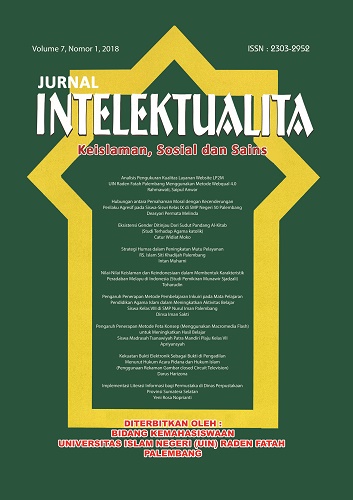Pengaruh Pengangguran dan Inflasi terhadap Tingkat Kemiskinan di Sumatera Selatan Tahun 2015-2019
Main Article Content
Abstract
Penelitian ini bertujuan untuk mengetahui dan menganalisis pengaruh pengangguran dan inflasi terhadap tingkat kemiskinan di Sumatera Selatan. Metode penelitian yang digunakan adalah kuantitatif dengan pendekatan eksplanasi. Sumber data primer yang digunakan adalah data Badan Pusat Statisktik (BPS) dan cross section dari provinsi Sumatera Selatan dari tahun 2015-2019. Data dianalisis melalui uji normalitas, uji multikolinearitas, uji autokorelasi, uji heterokedastisitas, uji T, uji F dan koefisien determinasi. Penelitian ini menyimpulkan bahwa pengangguran dan inflasi berpengaruh positif terhadap kemiskinan di provinsi Sumatera Selatan.
Article Details
How to Cite
[1]
“Pengaruh Pengangguran dan Inflasi terhadap Tingkat Kemiskinan di Sumatera Selatan Tahun 2015-2019”, intelektualita, vol. 10, no. 2, pp. 365–370, Oct. 2021, doi: 10.19109/intelektualita.v10i2.8825.
Section
Articles
Authors who publish with this journal agree to the following terms:
- Authors retain copyright and grant the journal right of first publication with the work simultaneously licensed under a Creative Commons Attribution License that allows others to share the work with an acknowledgement of the work's authorship and initial publication in this journal.
- Authors are able to enter into separate, additional contractual arrangements for the non-exclusive distribution of the journal's published version of the work (e.g., post it to an institutional repository or publish it in a book), with an acknowledgement of its initial publication in this journal.
- Authors are permitted and encouraged to post their work online (e.g., in institutional repositories or on their website) prior to and during the submission process, as it can lead to productive exchanges, as well as earlier and greater citation of published work
How to Cite
[1]
“Pengaruh Pengangguran dan Inflasi terhadap Tingkat Kemiskinan di Sumatera Selatan Tahun 2015-2019”, intelektualita, vol. 10, no. 2, pp. 365–370, Oct. 2021, doi: 10.19109/intelektualita.v10i2.8825.

